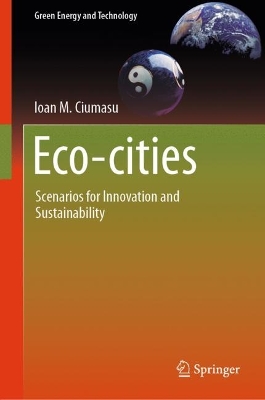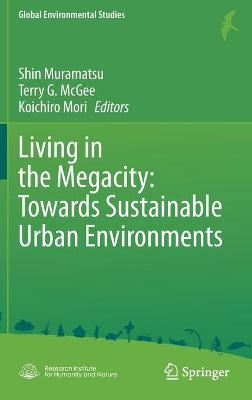Pathways to a Sustainable Economy
 -15%
portes grátis
-15%
portes grátis
Pathways to a Sustainable Economy
Bridging the Gap between Paris Climate Change Commitments and Net Zero Emissions
Hales, Robert; Sarker, Tapan; Hossain, Moazzem
Springer International Publishing AG
09/2018
225
Mole
Inglês
9783319884707
15 a 20 dias
454
Descrição não disponível.
Chapter1.Introduction: Pathways to a Sustainable Economy.- Part1.Critical Perspectives on Achieving a Zero Emissions Future.- Chapter2. Joining the Dots: Sustainability, Climate Change and Ecological Modernisation.- Chapter3. A Systems Critique of the 2015 Paris Agreement on Climate.- Chapter4. Structural impediments to sustainable development in Australia and its Asia-Pacific region.- Part2. Strategies to Achieve Sustainable Economy and Zero Emissions Future.- Chapter5. The Role of Planning Laws and Development Control Systems in Reducing Greenhouse Gas Emissions - Analysis from New South Wales, Australia.- Chapter6. Carbon Disclosure Strategies in the Global Logistics Industry: Similarities and Differences in Carbon Measurement and Reporting.- Chapter7. Synergy between population policy, climate adaptation and mitigation.- Part3. Major Challenges towards a Sustainable Future: Case studies from Asia.- Chapter8. From 'Harmony' to a 'Dream': China's evolving position on climate change.-Chapter9. COP 21 and India's Intended Nationally Determined Contribution Mitigation Strategy.- Chapter10. Seasonal drought thresholds and internal migration for adaptation: lessons from Northern Bangladesh.- Chapter11. Incentives and Disincentives for Reducing Emissions under REDD+ in Indonesia.- Chapter12. Carbon Budgeting Post-COP21 - The Need for an Equitable Strategy for Meeting CO2e Targets.
Este título pertence ao(s) assunto(s) indicados(s). Para ver outros títulos clique no assunto desejado.
United Nations Climate Change Conference;COP21;Paris Agreement;Intended Nationally Determined Commitment (INDC);National Mitigation actions;Non-state actors;Zero emissions goal/future;Sustainable development;Global higher education development;Emissions accountability;Ecological modernization;Resilient society;Climate adaptation;Ecologically responsible behavior;Sustainable housing design;Climate change management;air pollution and air quality
Chapter1.Introduction: Pathways to a Sustainable Economy.- Part1.Critical Perspectives on Achieving a Zero Emissions Future.- Chapter2. Joining the Dots: Sustainability, Climate Change and Ecological Modernisation.- Chapter3. A Systems Critique of the 2015 Paris Agreement on Climate.- Chapter4. Structural impediments to sustainable development in Australia and its Asia-Pacific region.- Part2. Strategies to Achieve Sustainable Economy and Zero Emissions Future.- Chapter5. The Role of Planning Laws and Development Control Systems in Reducing Greenhouse Gas Emissions - Analysis from New South Wales, Australia.- Chapter6. Carbon Disclosure Strategies in the Global Logistics Industry: Similarities and Differences in Carbon Measurement and Reporting.- Chapter7. Synergy between population policy, climate adaptation and mitigation.- Part3. Major Challenges towards a Sustainable Future: Case studies from Asia.- Chapter8. From 'Harmony' to a 'Dream': China's evolving position on climate change.-Chapter9. COP 21 and India's Intended Nationally Determined Contribution Mitigation Strategy.- Chapter10. Seasonal drought thresholds and internal migration for adaptation: lessons from Northern Bangladesh.- Chapter11. Incentives and Disincentives for Reducing Emissions under REDD+ in Indonesia.- Chapter12. Carbon Budgeting Post-COP21 - The Need for an Equitable Strategy for Meeting CO2e Targets.
Este título pertence ao(s) assunto(s) indicados(s). Para ver outros títulos clique no assunto desejado.
United Nations Climate Change Conference;COP21;Paris Agreement;Intended Nationally Determined Commitment (INDC);National Mitigation actions;Non-state actors;Zero emissions goal/future;Sustainable development;Global higher education development;Emissions accountability;Ecological modernization;Resilient society;Climate adaptation;Ecologically responsible behavior;Sustainable housing design;Climate change management;air pollution and air quality







